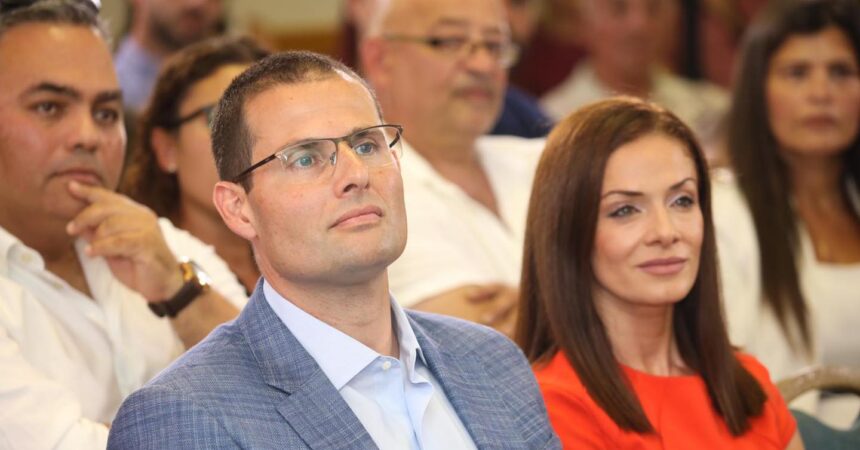Prime Minister Robert Abela is set to speak at an event in Tripoli focusing on Libya’s energy prospects despite growing concerns over human rights issues and Malta’s failure to meet EU renewable energy targets or tackle climate concerns.
The Libya Energy & Economic Summit takes place between 13-14 January and will be attended by Abela and Energy Minister Miriam Dalli, who will speak and participate in panels at the event.
Abela is expected to discuss trade and commercial ties between the two countries and explore the feasibility of a proposed renewable energy interconnector project. This would see establishing a solar photovoltaic park in Libya that would supply Malta with green energy.
However, the event is sponsored and supported by fossil fuel and energy producers, including PetroGas, Eni, Tamoil, Total Energies, and Repsol. In addition, the speakers, aside from several energy and natural resources ministers from North African countries and a handful of oil and gas experts, comprise mainly executives from fossil fuel multinationals.
According to the agenda, after speeches from Libyan Prime Minister Abdul Hamid Dbeibeh, Italian Prime Minister Giorgia Meloni and Abela, the first address is from an executive of the Libyan National Oil Corporation, which brings in most of the country’s income.
None of the speakers or scheduled talks on the agenda seen by The Shift appear to deal with renewable energy, such as wind or solar power.
Malta’s dismal renewables record
According to recent data from Eurostat, Malta has the second lowest share of energy from renewable sources in the European Union for 2022, with little progress expected during the last year.
Malta gets just 13.8% of its energy from renewable sources despite the Commission laying down a target of 42.5% by 2030.
Last year, the European Commission gave feedback on Malta’s National Energy and Climate Plan, describing it as “largely insufficient”.
It called on the country to increase its share of renewables to at least 28% by 2030, still 12.5 percentage points behind the rest of the EU.
Despite the criticism and the facts and figures that speak for themselves, the government has claimed it is doing well and “punching far above its weight” when tackling the climate crisis.
At COP28 in Dubai in late 2023, Abela said that over the last decade, Malta reduced greenhouse gas emissions from energy by 60%, failing to clarify if he meant those from within Malta or those based on consumption. He also didn’t mention emissions from transport or other crucial sectors, calling the reality of his figures into question.
Malta is also pushing ahead with plans for a gas pipeline connecting to Italy despite gas being a fossil fuel that should be phased out.
The government claims it could be used for hydrogen, technically renewable and clean energy, but it is currently not used and is subject to debate on feasibility.
With an estimated cost of €400 million, the Maltese government has asked the European Commission to stump up much of the funds. Despite intensifying calls to drop it, the Commission has kept the project on its list of possible projects to fund.
The project is controversial as the pipeline would link to the power plant operated by Electrogas. One of the ultimate beneficial owners of Electrogas is Yorgen Fenech, currently awaiting trial for complicity in the assassination of Daphne Caruana Galizia.
Under the terms of the Electrogas contract, the Maltese people are bound to buy from Electrogas despite the gas being supplied by a third party.
If the Melita pipeline goes ahead with EU funding, they will have to compensate Electrogas and, by default, Fenech, who remains a shareholder, by up to €85 million.
Caruana Galizia was investigating the Electrogas deal and Fenech’s involvement at the time she was assassinated.
Human rights in Libya
Meanwhile, the human rights situation in Libya remains poor, with Human Rights Watch stating in their 2023 report that “Migrants, asylum seekers, and refugees faced arbitrary detention, ill-treatment, sexual assault, forced labour, and extortion by groups linked with the GNU’s Interior Ministry, members of armed groups, smugglers, and traffickers.”
They also highlighted democratic issues regarding the failure to hold presidential and legislative elections, a power struggle between the House of Representatives appointed Fathi Bashagha as prime minister in parallel to GNU’s Dbeibeh, and the lack of a permanent constitution.
A November report from The Sentry found that the country is subject to a rapid expansion of illicit enterprises linked to its leaders, including human trafficking, fuel smuggling, drugs, money laundering, financial fraud and the theft of billions of dollars of public assets.
“A rapid expansion in the trafficking in drugs, fuel, and human beings and the outright theft of billions of dollars in public assets is transforming the country into a hub of transnational crime and an increasing threat to regional and international security,” the report concluded.
“When engaging with Western powers, senior Libyan politicians and technocrats portray themselves as invaluable allies, promising collaboration on terrorism, irregular migration, and hydrocarbon production. In fact, some of Libya’s leaders are at the heart of an array of brazen, multibillion-dollar criminal ventures.”
In addition, Malta and Libya have both been widely criticised for their collaboration on illegal pushbacks of migrants in the Mediterranean.
Malta has been accused on multiple occasions of ignoring distress calls, delaying or not providing assistance, and violating their obligations under international, local, and maritime law, resulting in the deaths of migrants or their return to an unsafe country.
Libya and its Coast Guard have also been accused of illegally pushing back boats to Libya, shooting at rescue vessels, threatening NGO workers, and complicity in the deaths, torture, rape and assault of migrants, including women and children.












